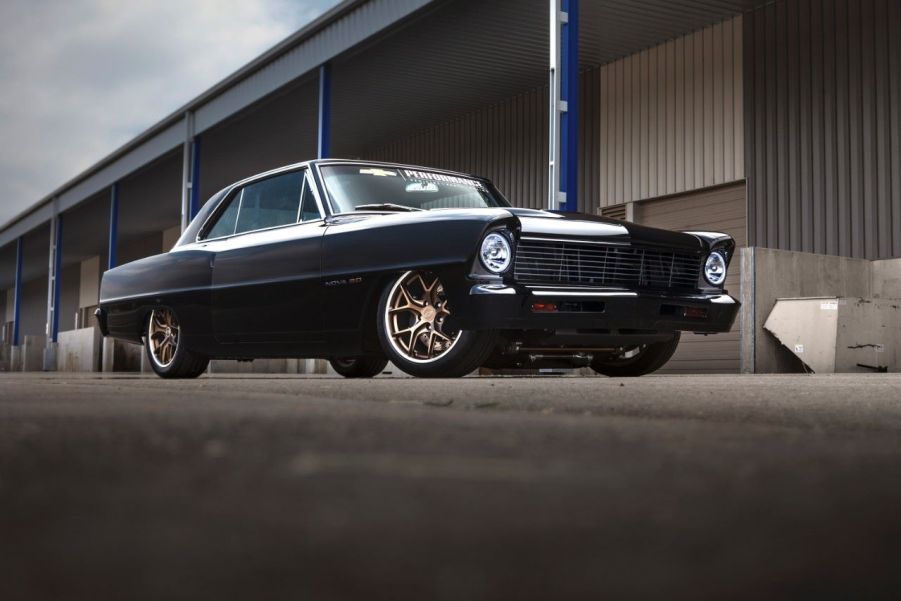
Fact or Myth?: Chevy Nova ‘No Go’ Spanish Name Killed Sales in Latin America
One of the most infamous stories in automotive history, as well as marketing, is the Chevy Nova. As the story goes, the Chevy Nova didn’t sell well in Latin America because in Spanish, Nova means “no go.” Fact or myth: Did the Chevy Nova “no go” Spanish name really kill sales in Latin America?
Myth: The Chevy Nova ‘no go’ story never actually happened

Logically, the story of the Chevy Nova “no go” makes sense. When seeing a car with a name that translates as “no go” in Spanish, Latin American car shoppers naturally would not want to buy it. Across the internet, there are thousands of references to the Chevy Nova incident. Additionally, marketing textbooks cite the incident when discussing “cultural differences and advertising,” as detailed by ThoughtCo.
However, the story of the Chevy Nova “no go” is a myth, an urban legend. It never actually happened. Like many urban legends, the Chevy “no go” story was repeated so many times that people believed it to be true. Also, similar to other urban legends, the Chevy “no go” story has a small element of truth, for “no va” does mean “no go.”
The Chevy Nova sold well in Latin America

Contrary to popular belief, though, the Chevy Nova sold well in Latin America. In Venezuela, the Nova actually exceeded sales projections from Chevrolet.
If you can speak Spanish, you likely understand why the Chevy Nova “no go” story is a myth. For one, in Spanish, nova and no va don’t sound the same, and most people would not confuse them. It would be like saying “carpet” and “car pet.” They sound different and have different meanings. Also, no va would be a highly unusual way to describe a car that can’t drive or function. The more appropriate Spanish phrase to use is no funciona.
Furthermore, there’s a gasoline brand in Mexico that uses the nova name. If a Nova gasoline could be sold in a Latin American country like Mexico, the use of Nova for a car name would be an unlikely hindrance to car sales.
Additional Spanish mistranslation urban legends
In addition to the Chevy Nova “no go” story, there are several other stories of Spanish mistranslation:
- The “Got Milk?” campaign used “¿Tienes leche?” for the Spanish version. In Spanish, ¿Tienes leche? translates as “Are you lactating?
- The Coors beer “let it loose” campaign used the translated slogan “suéltalo con Coors.” Literally, this means “let it go loose with Coors.” People might have confused this as slang for Coors makes people “suffer from diarrhea.”
- In Latin America, Nestlé was unsuccessful in selling Nescafé instant coffee. This is because people might have mistaken Nescafé to be “No es café” or “It isn’t coffee.”
- For an advertising campaign to demonstrate that its pens don’t leak, Parker Pen used the slogan “it won’t stain your pocket and embarrass you.” The company translated the slogan to “no manchará tu bolsillo, ni te embarazará.” However, instead of “to embarrass,” embarazar means “to be pregnant.” As a result, the slogan translates to “it won’t stain your pocket and get you pregnant.”
With the possible expectation of the Got Milk?/¿Tienes leche? campaign, all of these stories are probably urban legends. Despite this and the fact that the Chevy Nova “no go” story is a myth, it doesn’t diminish the need to be attentive to cultural variances of local markets around the world.
The world is more globalized than ever before. To make a profit, companies increasingly rely on the sales of their products in international markets. Countries have different languages and cultures. Because of this, companies need to adapt their products and messaging to best meet the unique needs and preferences of each country.


